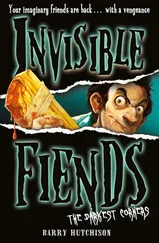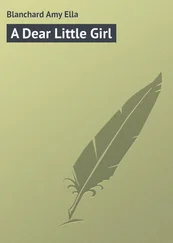Amy Blanchard - The Four Corners in Japan
Здесь есть возможность читать онлайн «Amy Blanchard - The Four Corners in Japan» — ознакомительный отрывок электронной книги совершенно бесплатно, а после прочтения отрывка купить полную версию. В некоторых случаях можно слушать аудио, скачать через торрент в формате fb2 и присутствует краткое содержание. ISBN: , Жанр: foreign_prose, на английском языке. Описание произведения, (предисловие) а так же отзывы посетителей доступны на портале библиотеки ЛибКат.
- Название:The Four Corners in Japan
- Автор:
- Жанр:
- Год:неизвестен
- ISBN:http://www.gutenberg.org/ebooks/45518
- Рейтинг книги:5 / 5. Голосов: 1
-
Избранное:Добавить в избранное
- Отзывы:
-
Ваша оценка:
- 100
- 1
- 2
- 3
- 4
- 5
The Four Corners in Japan: краткое содержание, описание и аннотация
Предлагаем к чтению аннотацию, описание, краткое содержание или предисловие (зависит от того, что написал сам автор книги «The Four Corners in Japan»). Если вы не нашли необходимую информацию о книге — напишите в комментариях, мы постараемся отыскать её.
The Four Corners in Japan — читать онлайн ознакомительный отрывок
Ниже представлен текст книги, разбитый по страницам. Система сохранения места последней прочитанной страницы, позволяет с удобством читать онлайн бесплатно книгу «The Four Corners in Japan», без необходимости каждый раз заново искать на чём Вы остановились. Поставьте закладку, и сможете в любой момент перейти на страницу, на которой закончили чтение.
Интервал:
Закладка:
"Not t-e-a, but t-i," Mrs. Beaumont explained. "The ti plant is used for many things. It makes a convenient wrapping for one's ordinary marketing, and takes the place of paper in more than one instance."
The girls were very curious to see what the luau would be like, and were charmed to find that the feast was to be served from a mat spread upon the ground. The mat was finely braided and was adorned with a profusion of flowers. At each place were laid leis of carnations, begonias, bourga invilleas, or some unfamiliar flowers; only roses and violets were conspicuous by their absence.
Mrs. Beaumont and her guests were welcomed with low salaams by those who were native Hawaiians, though the company was a mixed one, as the feast was attended by some of the officers and their wives more in a spirit of policy or curiosity than because of strictly social relations. The girls discovered that Mrs. Beaumont was quite right in her advice about the fish and pork which they found delicious. They tried the poi , but barely tasted it. There was a very possible salad made from the alligator pear, and the green cocoanuts were indeed a delicacy which they could enjoy. It was not appetizing to watch the eaters of poi wrap the sticky mass around their fingers before putting it into their mouths, and one or two glances were entirely sufficient. Knives and forks were provided for the principal guests, and indeed for any who preferred, but some still clung to the simpler and earlier manner of eating with their fingers.
Later on came a visit to the shore to see the surf-riding, less indulged in than formerly since clothes have become an impediment, yet interesting enough. Here, too, they heard the wild and melancholy song of the fishermen which Nan tried to jot down as a hint to her musical memory in days to come. A sightseeing tour about town was planned for the next day when they were to see the various buildings, the Executive mansion, once the palace, the Museum where, indeed, were the feather cloaks and other interesting exhibits of primitive days, the Punahou College, and, what to the Corners was the most interesting of all, the Lunalilo Home for aged natives.
"When I see those low salaams, I know I am in the Orient," said Nan. "Did you notice that old fellow actually prostrate himself?"
"They are a very gentle, biddable people, if they are lazy," remarked Mary Lee, "and they say they are strictly honest."
"I think that is because of the old system of tabu ," Nan made the remark. "You were not allowed to take anything that belonged to a chief, for it was a matter of life and death, and even to allow your shadow to fall across the path of one of those mighty beings meant 'off with his head' or some similar order. I know what I shall do when I am queen of these islands; I shall tabu Mother Hubbards. Look at that fat old monstrosity; isn't she a sight?"
"There are quantities of Chinese and Japanese," said Mary Lee, noting the various persons who passed them.
"It seems to me one sees more of them than of the natives."
"I believe they do outnumber the natives," Miss Helen remarked, "for they form the principal class of laborers. The Chinese, more than the Japanese, have become shopkeepers, and own a larger proportion of real estate, so no wonder we see so many of them."
"Are you all very tired?" asked Nan suddenly.
"I must confess that I am," Miss Helen told her.
"And I shall be mighty glad to get to my room," Mary Lee put in. "Why do you ask, Nan?"
"Because I am wild to take a ride on those King Street cars. Mrs. Beaumont says that nobody of the better class does ride on them, and that is the very reason I want to go."
"Oh, Nan, I wouldn't," objected her sister.
"Why not? Nobody knows me, and I shall probably see sights undreamed of. Come along, Mary Lee."
"No, indeed, I don't want to get mixed up with lepers and filthy scum of the earth."
"Nonsense! There couldn't be any lepers, for they keep a very strict watch and hustle them off to Molokai as soon as one is discovered."
"Mrs. Beaumont saw one; she told me so."
"Oh, Mary Lee, did she really?"
"Yes, she was buying something in one of the Chinese shops at the time of the Chinese New Year, and this creature was begging outside when she came out. She says she shall never forget the sight, and that sometimes their friends hide them so the officers cannot find them."
"Well, they will not hide them on a King Street car, that's certain," retorted Nan. "If neither of you will go with me, I shall go by myself."
Finding her determined, Miss Helen and Mary Lee went on to their hotel while Nan boarded the car she had selected. It was about an hour before she rejoined them. "Well, how was it?" asked Mary Lee as her sister came in.
"It was great larks," was the answer. "You missed it, you two proper pinks of propriety."
"Come in and tell us, Nan," called Miss Helen from the next room.
Nan laid aside her hat and came to her aunt, sitting on the side of the bed while she related her experiences. "It was perfectly decent and respectable," she declared, "and the route is a beautiful one. A most polite Chinese person of the male persuasion took my car fare to deposit, handed me my change with an entrancing bow and then," she laughed at the recollection, "neatly abstracted his own nickel from his ear and put that in, too."
"From his ear?" Miss Helen exclaimed.
"She is just jollying us, Aunt Helen," said Mary Lee.
"Indeed I am not," declared Nan, "and, what is more, he had stowed away another nickel, for his return fare, in his other ear; I saw as I came out. For my part I think it is a lovely idea, and I believe I shall adopt it in future, particularly when I must get on one of those evil inventions, a pay-as-you-enter car. One day in New York I dropped as many as three car fares in trying to get a nickel into the box. It was a rainy day; I had my umbrella and a small traveling bag to carry, so how in the world I could be expected to grasp the situation I have been wondering ever since. No, the ear is the place, a simple and effective way of solving a very difficult problem."
"What else did you see?" queried Miss Helen.
"I saw a bland, urbane native lady, gowned in a pink Mother Hubbard – I have learned that the native name for these horrors is holuku – well, she wore one. She carried a basket of fish, principally alive, for one that looked like a goldfish almost jumped into my lap. When she left the car I noticed that the Chinaman next me began to jerk his foot in a most remarkable manner. He attempted to get up, but somehow couldn't seem to manage it. The woman was going one way; the car the other; but finally another passenger stopped the car after some unintelligible words to the motorman and I discovered that the woman's hook and line had caught in the Chinaman's shoe. The woman was dragging away, all unconsciously, for she had caught a fish which she didn't intend to fry. It was very funny, but I was the only one in the car who laughed; the rest were far too polite."
"Well, Nan, it is just like you to have had such an experience," said her aunt.
"If I were going to stay in Honolulu for any length of time," returned Nan, "I think I should like to take a ride in the King Street cars every day. What are we going to do to-morrow?"
"We are to have tea in Mrs. Beaumont's little grass house – you know she owns one – and she thinks there is to be an auction."
"Calabashes!" cried Nan. "Good! I have set my heart on one, but I am not going to pay more than ten dollars for it."
"I am afraid you will be disappointed then," her aunt told her, "for they run up as high as fifty dollars and over, I am told."
"Well, we shall see," said Nan. "Of course I can't spend all my spare cash on calabashes or I will have none left for Japan where I expect to be tempted beyond my powers of resistance."
Читать дальшеИнтервал:
Закладка:
Похожие книги на «The Four Corners in Japan»
Представляем Вашему вниманию похожие книги на «The Four Corners in Japan» списком для выбора. Мы отобрали схожую по названию и смыслу литературу в надежде предоставить читателям больше вариантов отыскать новые, интересные, ещё непрочитанные произведения.
Обсуждение, отзывы о книге «The Four Corners in Japan» и просто собственные мнения читателей. Оставьте ваши комментарии, напишите, что Вы думаете о произведении, его смысле или главных героях. Укажите что конкретно понравилось, а что нет, и почему Вы так считаете.












